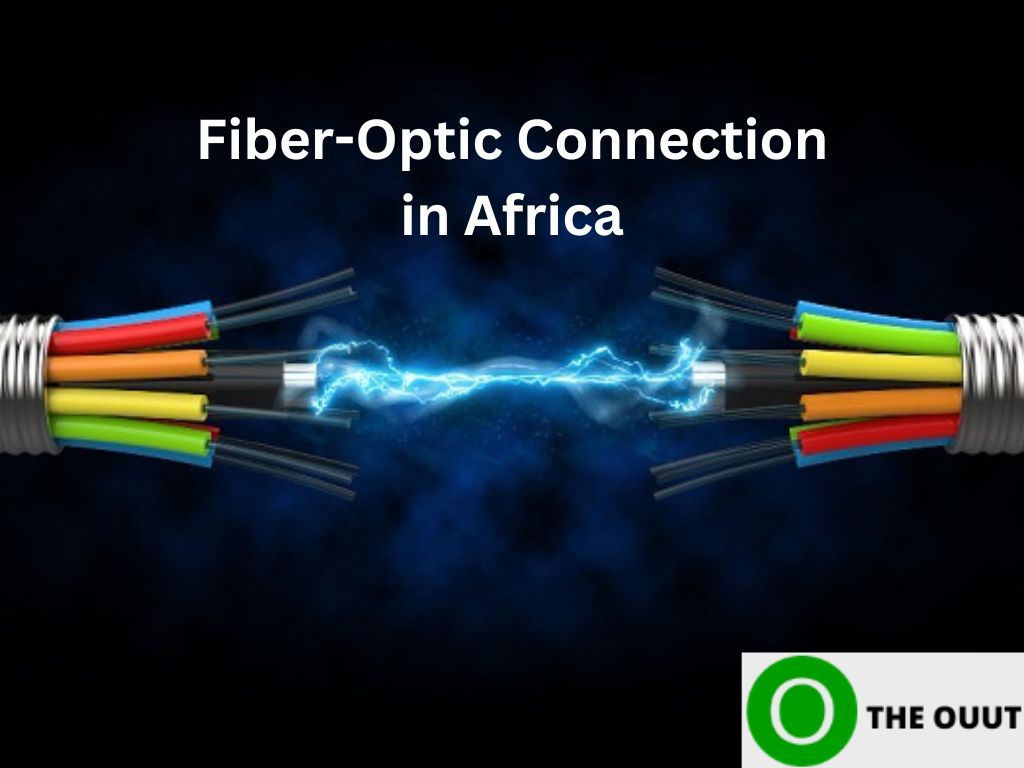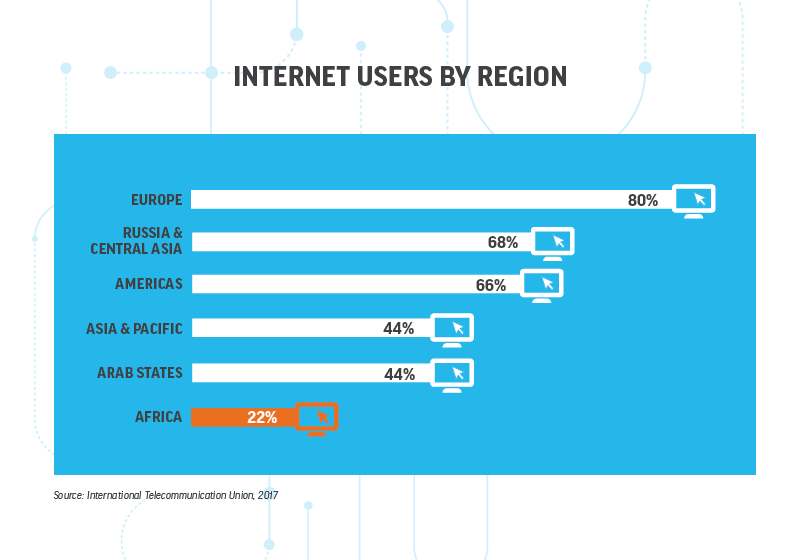Fiber-Optic Connection in Africa

Access to internet makes it possible to read this. While it is easy for you, it is impossible for half the world’s population; with the majority of this half residing in Africa. Per the IFC, only 22% of Africa’s population is connected to the internet; this makes fiber-optic connection highly valuable. A kilometer of this cable can be constructed for between $15,000 and $30,000. However, more than 500,000 kilometers of cable are required to connect the African continent.
The need to move work and home life activities online during the COVID-19 pandemic resulted in a record 21.15 million new fixed broadband connections (including fiber, DSL, cable, and others) in the year to end-December 2020, surpassing copper-wire DSL connections for the first time across OECD countries.
The continent must have accessible and affordable Internet in order to participate in the digital economy. As it makes it easier for people and enterprises to reach markets, such better connectivity stimulates GDP development. Digitalization opens up new opportunities for expanding access to services like health and education. Additionally, it enables a workforce with advanced digital skills to create thriving digital economies and vibrant markets.
According to the most recent update to the OECD’s broadband portal, fiber now accounts for more than 30% of fixed broadband subscriptions across the organization’s 38 member countries, up from 12% a decade ago. Fiber is also the broadband technology with the fastest rate of growth, with subscriptions rising 14% in 2020 from 2019 and outpacing a 5% increase in total fixed broadband subscriptions.

As African customer and business demands are putting increasing pressure for reliable and speedy fiber connection, it is noteworthy that fiber has not been distributed throughout the continent.
Here are top 5 African countries with the highest fiber-optic connection:
South Africa
South Africa is the African nation with the fastest fixed broadband, by far. The fixed broadband average speed when traveling to South Africa is 61.75 Mbps. South Africa comes in at 87th place in the globe with this score.
Ghana
Ghana, a country in West Africa, is second. You may be certain of receiving an average fixed broadband speed of 54.06 Mbps here. The country ranks 93rd in the world for consistent internet speed.
Cote d’Ivoire
Another West African nation, Cote d’Ivoire, is ranked third. Your wired connection will typically provide 52.02 Mbps of speed, which is comparable to the speed in Ghana. Cote d’Ivoire is ranked 97th in the world with this mark.
Burkina Faso
It should not come as a major surprise that many countries in West Africa have dependable broadband connections. They can take advantage of wired connections from subsea cables going from Europe thanks to their proximity to the Atlantic Ocean. Burkina Faso has a 42.94 average speed, which places it 104th in the world.
Egypt
Egypt seems to be outpacing the other nations in North Africa in terms of innovation, power, and the economy. Additionally, Egypt should be your goal if you want the fastest fixed broadband connection in Africa. Egypt is ranked 107th in the world with an average speed of 39.85.
The Ouut’s Take
No. The giant of Africa were not omitted, Nigeria missed out on the list; didn’t even make the top 10 (Madagascar, Seychelles, Congo, Senegal and Gabon are the other 5). However, with fiber appearing to be growing increasingly in Africa, it is expected that every Africa nation can create the needed communication infrastructure to stay competitive in the global fiber market. The advantages of fiber networks are being actively promoted by organizations like the FTTH Council Africa and Google as they look to digitize the African market. The effects will be enormous; according to McKinsey, the internet will boost Africa’s GDP by $300 billion by 2025.
There’s a great interest in subsea connectivity to Africa from major players in the industry as seen with the entry of Equiano and 2Africa cables. Through better access to networks businesses have increased opportunities to sell on a local and global scale, new infrastructure will attract international investment and drive up the standard of living for individuals.
Government efficiency will increase and vital services such as education and healthcare will be improved as connection speeds rise through new fiber infrastructure. Fast internet access helps with teaching at all levels, and provides the ability for university students to collaborate with their peers around the world, without needing to leave the country.
